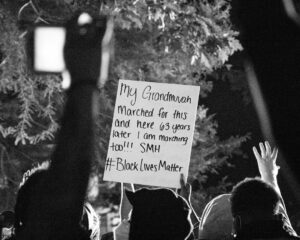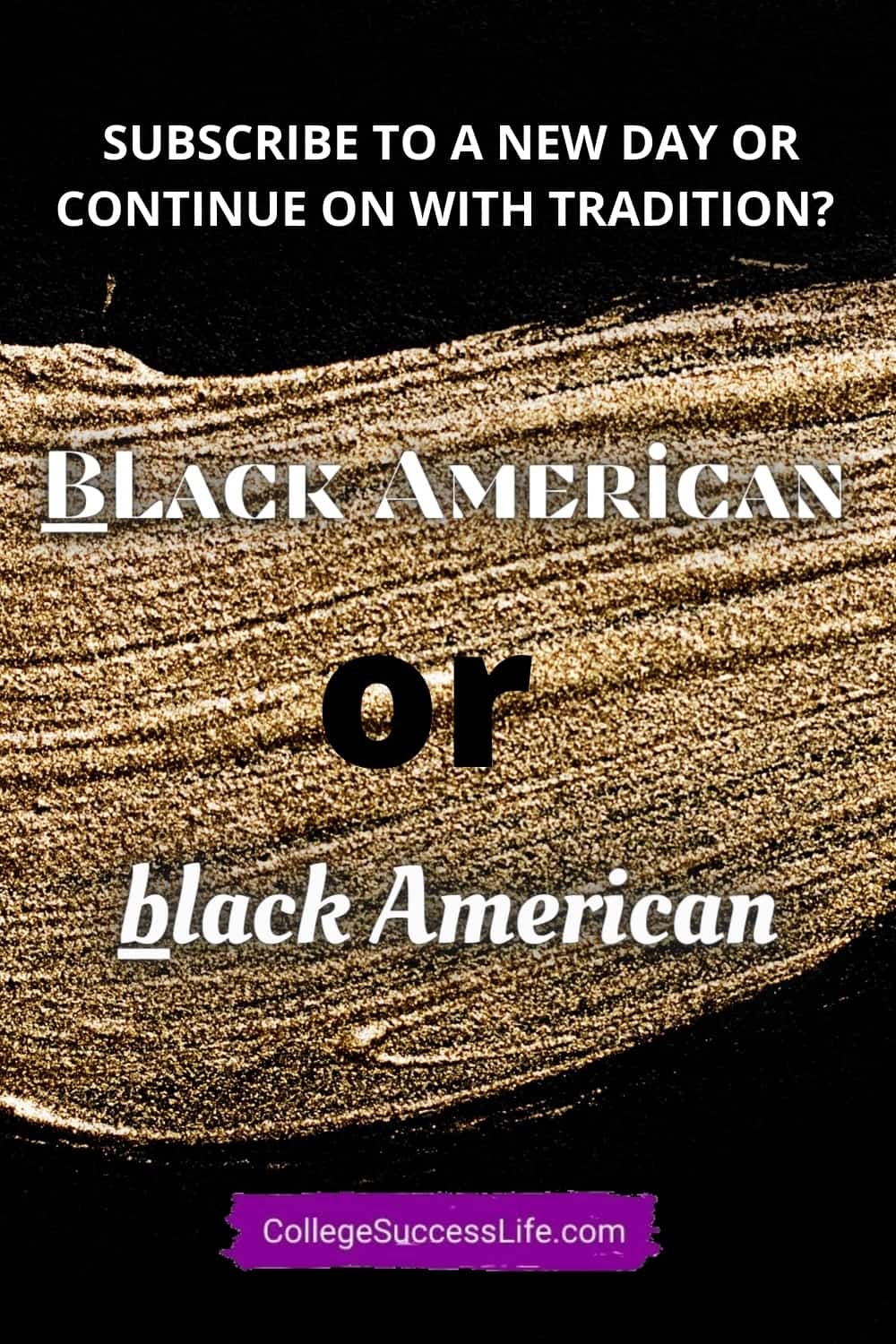
black – A Racial Microaggression – Change Needed?
By Dr. Lana W. Jackman, Editor
Which works for you – Black American or black American?
Capitalizing an adjective that refers to an ethnic group…can this be a mitigating factor in America’s ethos of racial insensitivity?
According to the grammar police, you capitalize an adjective when it begins a sentence and/or is derived from a proper noun, ex. America – Americans.
However, there is an exception.
According to the academic granddaddy of writing style, the Chicago Manual of Style, you can capitalize the term black when used in reference to race, if the author or publication prefers to do so.
Standard usage in the U.S., however, is to use the lowercase “b” when referencing black people, black culture, black society, etc.
Of course, this issue is constantly debated in various literary/publication circles.
One argument is that if you capitalize black, then you’ll have to capitalize white when referring to race.
And that may embolden white supremacists. But aren’t they emboldened already by American history and tradition?
Another typical example of traditional usage is this recent USA Today headline, “Health issues for blacks, Latinos and Native Americans may cause coronavirus to ravage communities.”
Dear reader, doesn’t that look odd to you?
black American… A Subliminal Suggestion
 Publications and websites are read around the world by millions.
Publications and websites are read around the world by millions.
And continued use of lowercase “b” when referring to Black people, Black folk or Black culture subliminally suggests the continuation of a historical narrative espousing the pernicious perception and treatment of Black folk as “2nd class citizens”.
Yet, many publications/websites still subscribe to institutionalized traditional standards, like the New York Times and the Washington Post.
And, BTW, isn’t institutionalized racism a major culprit in the ongoing racial unrest that exists in America today?
So, for me, reading any article or website that uses the lowercase b when referencing “black people ” always produces in me a negative, visceral reaction.
Even though the article may include the term African-American, I still get a negative gut reaction whenever I see the reference “black people“.
Consistently having this reading experience often raises, for me, the entire spectrum of Dr. Joy Degruy’s post traumatic slave syndrome, a condition that describes the historical, multi-generational, institutionalized trauma of slavery/racism on the evolution of Black people in America.
And that is tough to handle emotionally and psychologically as an adult, regularly, never mind subjecting children, teenagers, and young adults to the incredible power of subliminal suggestion.
A Viral Solution… Black American
So, regardless of the “literary issues” involved, I think it is time that American society move forward, invoke literary license and standardize the  practice of capitalizing the word black in all publications, websites, and social media outlets whenever the term is used to refer to Black people.
practice of capitalizing the word black in all publications, websites, and social media outlets whenever the term is used to refer to Black people.
And since we are creating a new normal in America, let’s declare the capitalization of Black, whenever referring to Black people, a new literary, social media publication policy… and make it go viral!
Support Black-owned Businesses, either with dollars and/or by word-of-mouth!
Here’s just a few…(Click)
A Word to the Wise...
An Academic Pearl of Wisdom
Whenever a college student faces an academic and/or social challenge, they often ask a peer or a friend first for advice.
And that’s okay.
However, resolving the issue to your best advantage often requires consulting with an academic advising professional as well.
Your academic adviser knows the campus academically, administratively, and socially.
And what they don’t know, they can point you to the person who does know. Include this strategy in your current plan for college success.
And we're always available to help as well!
Disclaimer Reminder: A college student's first line of inquiry should always be with their campus academic adviser. College Success Life Advising Sessions provide additional problem-solving options to undergraduate and graduate students for further exploration on their individual campuses. Students should always consult their assigned adviser not only during the course selection process but periodically to keep apprised of programmatic changes, testing requirements, course additions/deletions, GPA modifications, etc.
Disclosure: This page contains affiliate links, which means we will make a commission at no extra cost to you, if you make a purchase after clicking my link.











